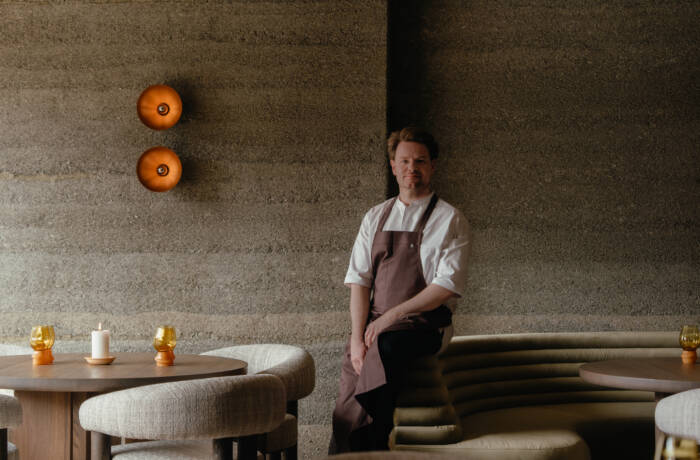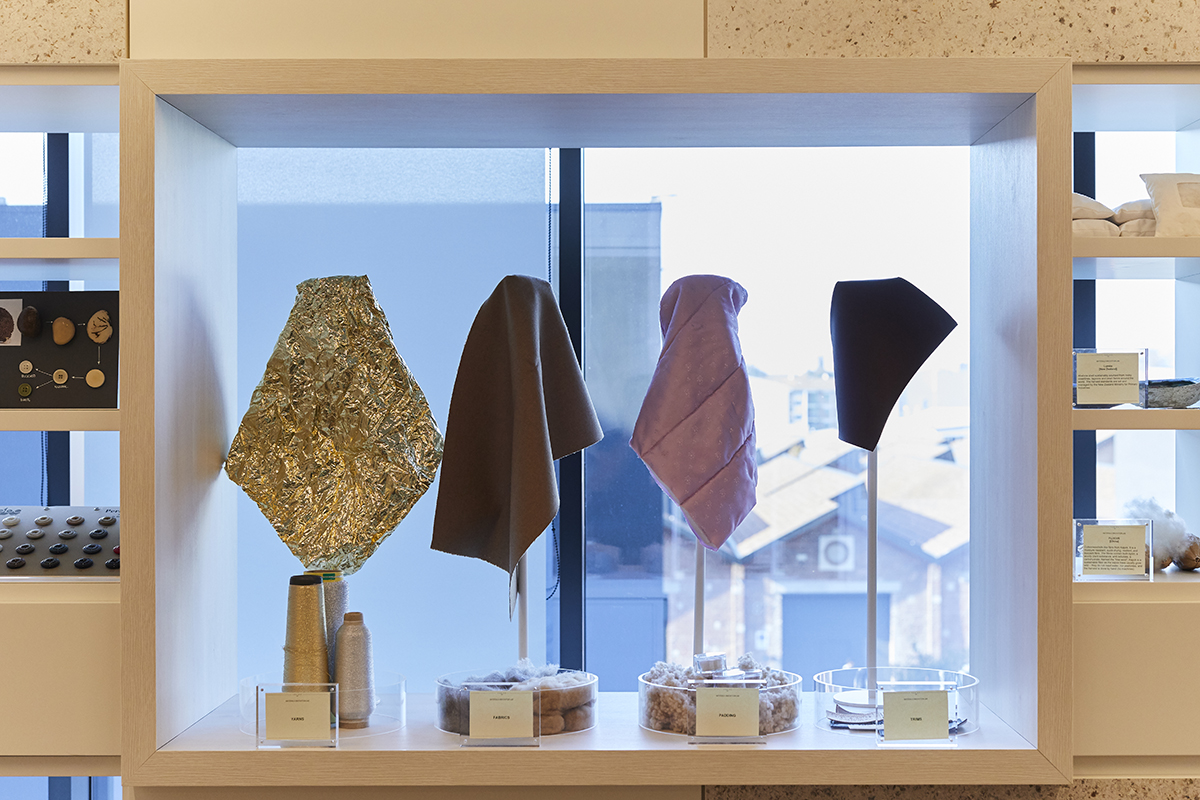
Sustainable samples at Kering’s Material Innovation Lab, Milan
When Kering, the French luxury conglomerate that owns Gucci, Saint Laurent, Balenciaga and Bottega Veneta, introduced a radical sustainability programme just over ten years ago, the rest of the industry was bemused. Now the group is seen as visionary. Marie-Claire Daveu, the group’s Chief Sustainability and Institutional Affairs Officer, who oversaw the programme and introduced the first EP&L in the luxury industry, speaks to Darius Sanai about what happens next

Marie-Claire Daveu
Darius Sanai: How has fashion progressed in sustainability in the past ten years?
Marie-Claire Daveu: I see a big difference. I joined Kering in September 2012 and I think [Kering CEO] François-Henri Pinault was really pioneering. We were a little bit alone when we spoke about this topic and about how we can measure what we do. For us, from the start, it was really key to have the same approach to sustainability that we have for financial commitments – to have KPI metrics and competitive targets. Now, if we look around, we can see more and more that there is better awareness from many companies. The data and the challenges linked with climate change and biodiversity are now well known and recognised by the majority of companies.
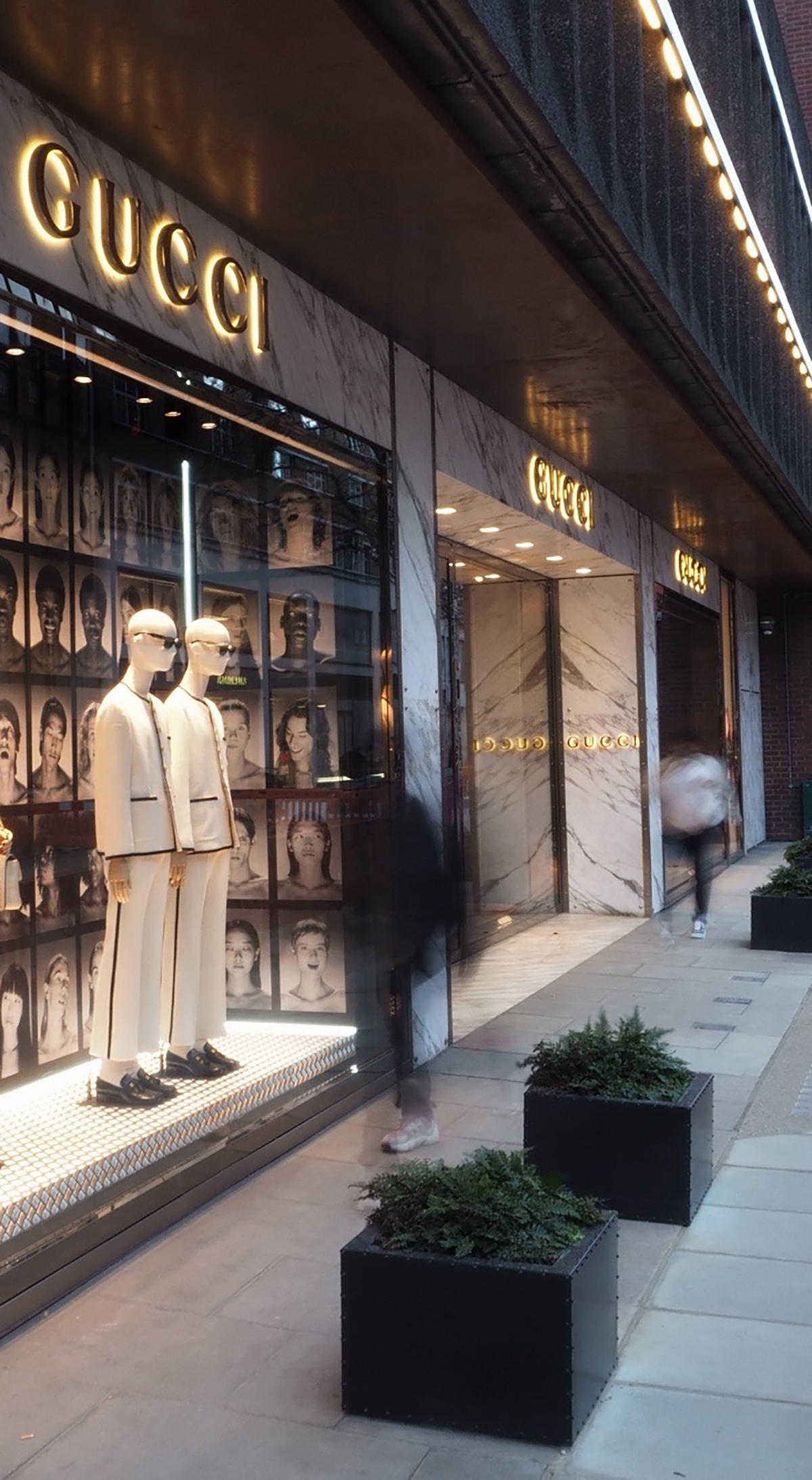
Gucci, one of Kering’s iconic brands
DS: Are words being backed up by action?
MCD: Yes, and we need to act operationally. Here are two examples. First, the Fashion Pact [a fashion-industry initiative created by French President Emmanuel Macron and François- Henri Pinault, presented at the G7 in 2019]. We now have more than 250 companies involved, and we have been able to put in place a Collective Virtual Power Purchase Agreement, to buy renewable energy together. Another example is the Regenerative Fund for Nature that we created with Conservation International, linked to regenerative agriculture.
Follow LUX on Instagram: luxthemagazine
DS: Will regenerative agriculture become mainstream in fashion?
MCD: It is difficult to say what the future looks like, but I hope so. I think it’s reasonable because you have positive impact on the environmental side and you take the community into account. It’s different to conventional agriculture, and also to organic agriculture, which sometimes can be challenging for communities. You have to accept it takes time because the transformation takes at least three years. For companies like ours, that use cotton, silk and wool, you have to also create a sustainable supply chain.
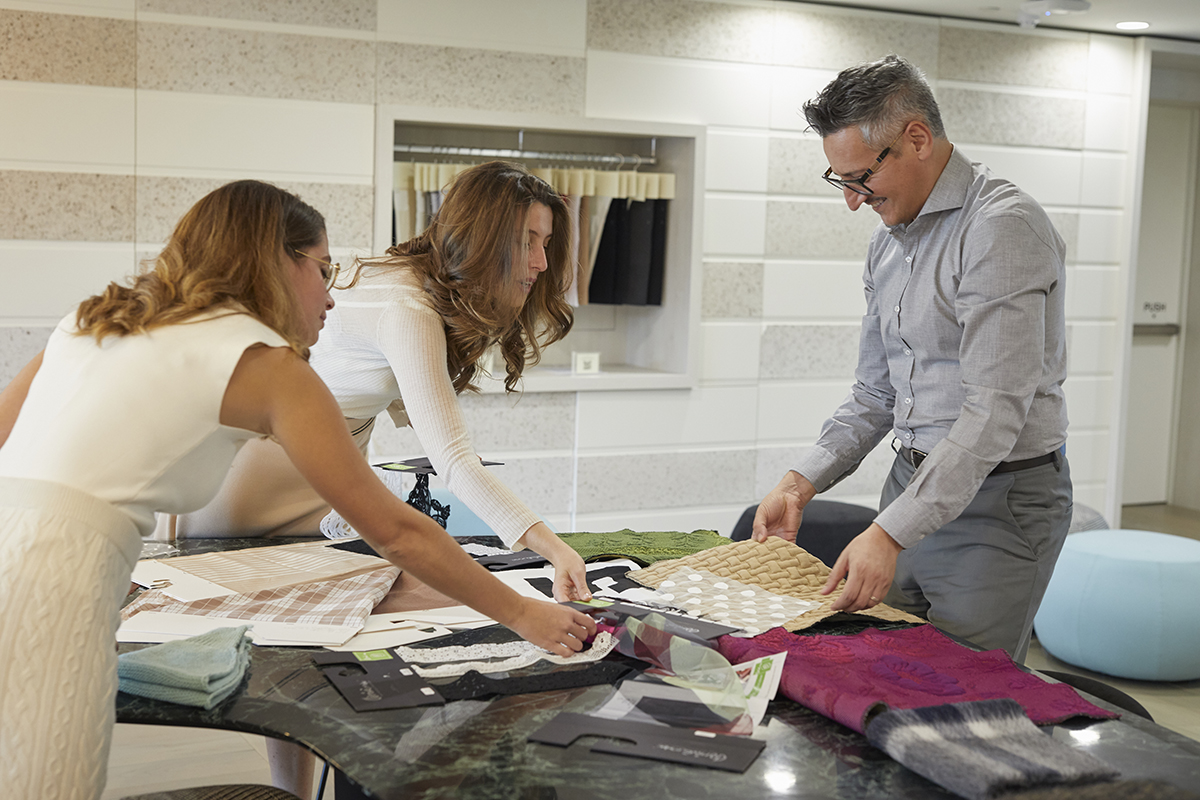
The Kering Material Innovation Lab team at work in Milan
DS: How can companies with fewer resources match your idealism?
MCD: I don’t think I am idealistic. I’d say I am optimistic, not idealistic. I try to be pragmatic. I am conscious about the challenges, about the issues. My strong conviction is, if you are a company and you do not include this topic in your strategy, I think it is questionable whether the company will survive. Take energy, for example. Energy is crucial to a business model. If you don’t think about efficiency you will have a problem. So we link back – if more and more investors and analysts pay attention to this topic, it will be a challenge to have access to credit if you do not. You will be able to compare companies against each other with metrics.
DS: President Biden just overturned the recent Congress ban on using ESG metrics in investment. Is there still a danger that support will just be in the EU?
MCD: One of the key criteria is that all over the world, consumers are speaking about these things. We won’t have the choice. It is better to anticipate and be well prepared. It is very interesting to see that even in some countries where the regulation and the policies are different, private companies themselves are investing in what we call ESG criteria. Even in countries where the regulation is different, it is still in their interests.
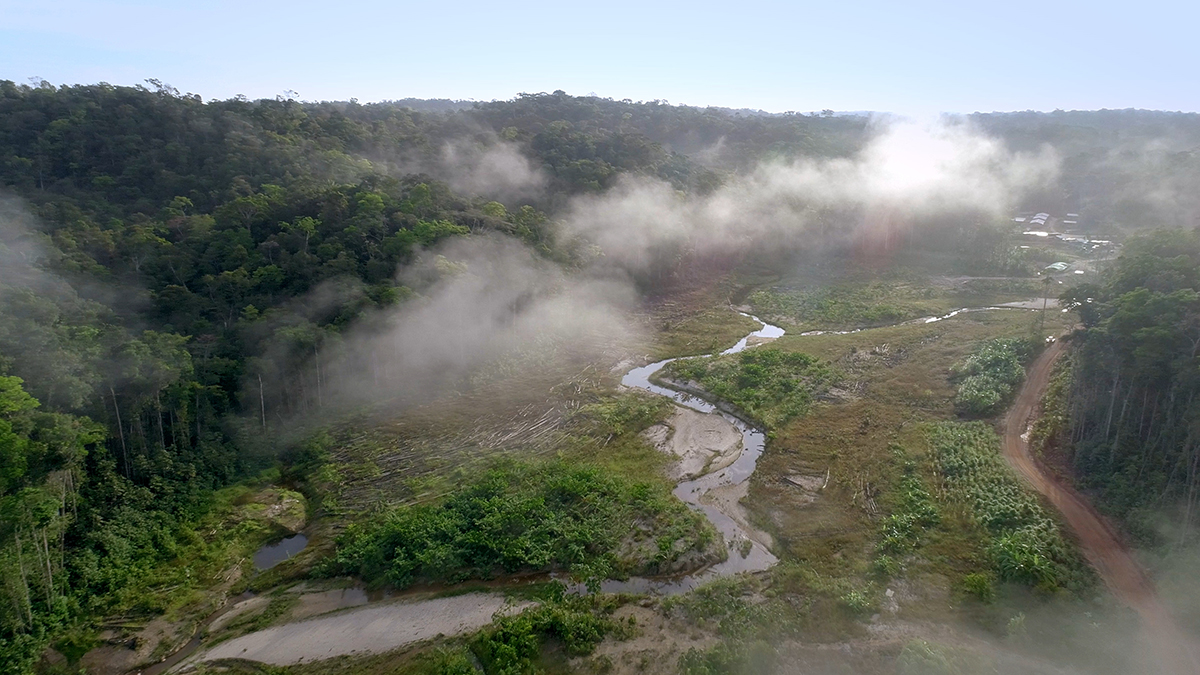
View of a Kering reforestation programme in Guyana
DS: So what is the biggest challenge?
MCD: The big challenge is the question of speed. How fast will we be able to transform the business model to make the ecological transition and to really integrate and scale the topic? I don’t have the answer today, because I think it will take us a few years to do this.
DS: Is there a governance issue in less developed economies?
MCD: We have to maximise our operational involvement on the ground for our projects. Each time, we identify an NGO that is global but also local to follow the project and to be really involved, so we can ensure that what we have planned is really implemented on the ground. That’s not a perfect answer, but we want to be sure that what we decide to do becomes a reality. It’s really key to identify the right partner to do this. If I am in Mongolia, I need to know I have the right partner on the ground and, if not, I will come in from Paris and check.
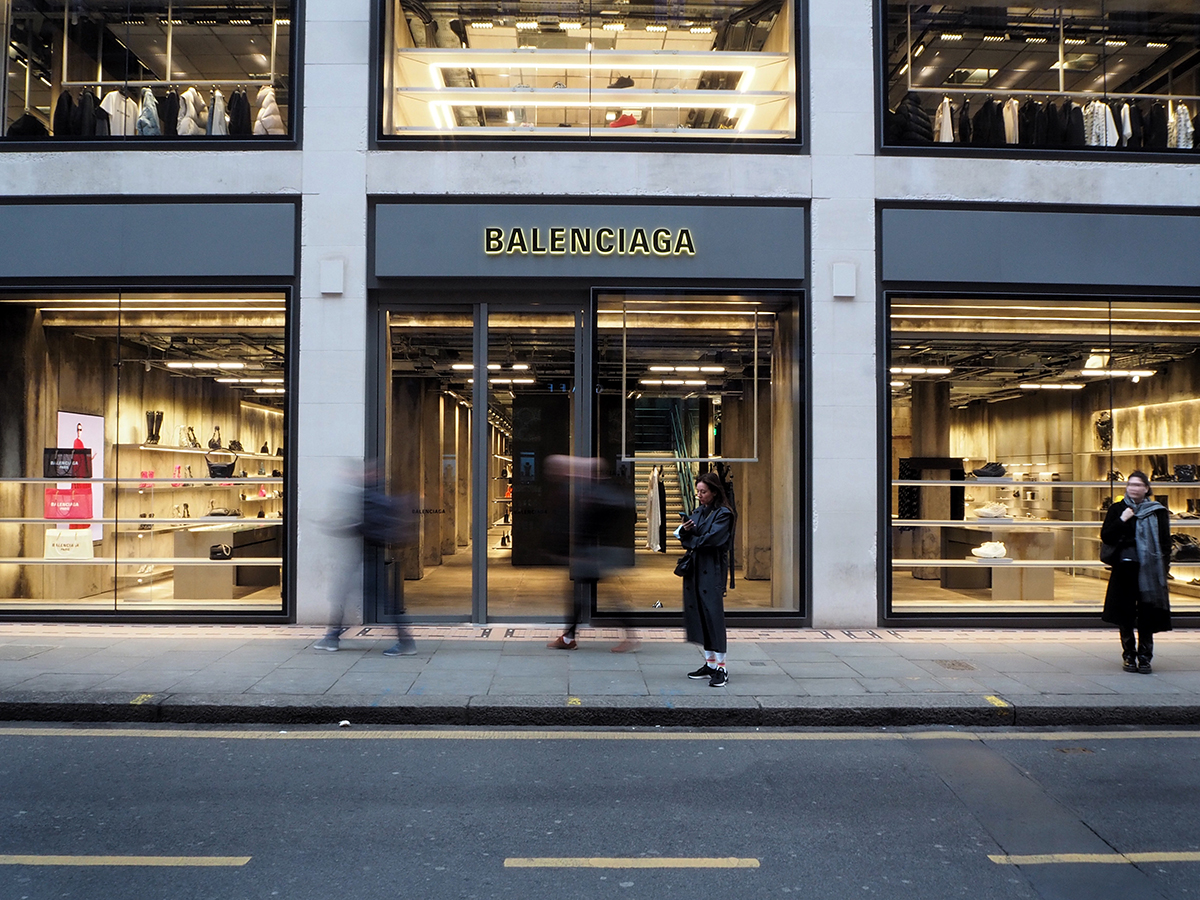
Balenciaga, another of Kering’s most renowned brands
DS: Do luxury consumers make decisions based around sustainability?
MCD: I am convinced that, for the luxury customer, sustainability is part of the quality, part of the reason they buy a luxury product. For them, it is important that the raw materials are being produced in a way that pays attention to people and the planet.
Read more: Fausto Puglisi Interview: Refashioning Roberto Cavalli
DS: Do consumers understand, say, the link between biodiversity and climate change?
MCD: Do people always make those connections? No, but they are very aware of climate change – they see and live it. It is now something that has already happened. True, sometimes there can seem a distant connection between buying a product and the impact on the environment or biodiversity, and some people will say that their impact is nothing compared to that of a factory. But really, I see a change. The new generation are afraid of what is happening, and we speak more and more about what is happening. It was not the case before, but today, everyone has something to say about the topic.
Find out more: kering.com/en/sustainability
This article was first published in the Spring/Summer 2023 issue of LUX

